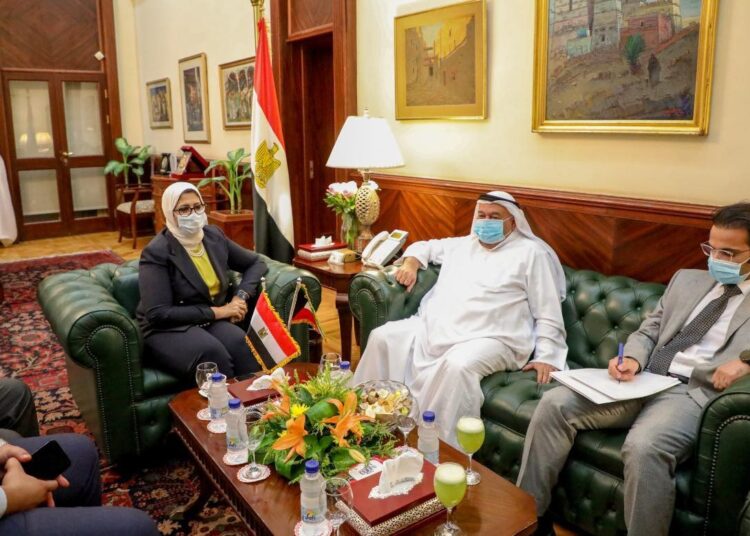Health Minister Hala Zayed announced, during a meeting with Kuwait’s Ambassador in Cairo Mohamed Saleh Al-Thuwaikh on Tuesday, that over the last fourteen days, 350,000 citizens have received various jabs before they travel out of Egypt.
Egyptians under 18 years can also be vaccinated before they leave for study or medical treatment abroad, a health ministry statement said.
The Kuwaiti envoy said his country was ready to facilitate procedures for safe travel between Egypt and Kuwait, the statement added.
Measures taken by the Egyptian Health Ministry are in line with Kuwait’s regulations, and this will mean more flights between both countries as of September, the ambassador said.
Al-Thuwaikh praised the Egyptian government for its efforts to curb the spread of the coronavirus crisis, since its beginning.
He also lauded Egypt for supporting Arab, African, European and Asian countries in the face of the pandemic.
During the meeting, both officials exchanged information regarding the coronavirus situation in their respective countries, the statement said.
Presidential health initiatives launched since 2018 under the slogan ‘100 Million Healthy Lives’ had helped improve the nation’s health service, which has been offering millions of people medication free of charge, Spokesman Khaled Megahed said.
Al-Thuwaikh also appreciated Egypt’s efforts in combating and eliminating hepatitis virus C and non-communicable diseases.
Egypt started its vaccination campaign earlier this year and has allocated 657 vaccination centres nationwide, including 145 centres for those travelling abroad, according to data released by the ministry last week.
To date, Egypt’s vaccination campaign involves the use of the imported version of the Sinovac vaccine – with the locally-produced version going into circulation last week – along with the Sputnik V, AstraZeneca, Johnson & Johnson and Sinopharm vaccines.
Egypt is also expecting 5.2 million doses of Pfizer and Moderna vaccines in September plus a second batch of the Johnson & Johnson vaccine.
This is in addition to the country’s ongoing efforts to produce Sinovac and Sputnik shots annually to cover local and African needs.






Discussion about this post